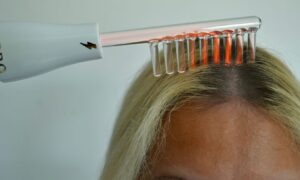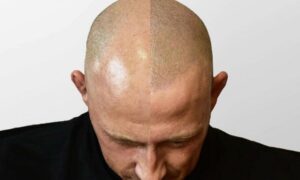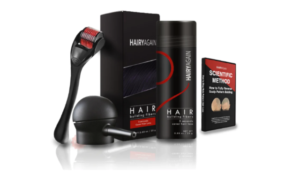Introduction
Can a dry scalp cause hair loss? Dry scalp and hair loss are two common concerns that many individuals face. It is often speculated that a dry scalp can lead to hair loss, but is there any truth to this claim? In this article, we will delve into the relationship between dry scalp and hair loss, exploring the facts and dispelling the myths.
Understanding Dry Scalp
A dry scalp occurs when the skin on the scalp lacks sufficient moisture, leading to itchiness, flakiness, and overall discomfort. While a dry scalp is a common condition, it is essential to differentiate between a dry scalp and other scalp disorders like dandruff or seborrheic dermatitis, which can also contribute to hair loss.
The Connection Between Dry Scalp and Hair Loss
Contrary to popular belief, a dry scalp itself is not directly responsible for hair loss. However, if left untreated, a persistently dry scalp can lead to certain conditions that may contribute to hair loss.
- Itchiness and Scratching:
When the scalp becomes dry and itchy, individuals often scratch vigorously to relieve the discomfort. Unfortunately, excessive scratching can damage the hair follicles, leading to hair breakage and thinning over time.
- Inflammation and Irritation:
A dry scalp can become inflamed and irritated, which may disrupt the normal hair growth cycle. Inflammation can affect the hair follicles’ ability to produce healthy hair, resulting in weaker strands and eventual hair loss.
Effective Remedies for Dry Scalp and Hair Loss
To address both dry scalp and prevent potential hair loss, it is important to adopt a comprehensive approach. Here are some effective remedies:
- Hydration and Moisturization
Keep your scalp hydrated by drinking an adequate amount of water and incorporating moisturizing shampoos and conditioners into your hair care routine. Look for products containing natural ingredients like aloe vera or tea tree oil, which can soothe and nourish the scalp.
- Gentle Scalp Care
Avoid using harsh hair products that can strip the scalp of its natural oils. Opt for gentle cleansers and refrain from excessive scrubbing or brushing. Use a wide-toothed comb or a brush with soft bristles to prevent further damage to the hair and scalp.
- Regular Scalp Massages
Massaging the scalp stimulates blood flow, which helps nourish the hair follicles. Use your fingertips to gently massage the scalp in circular motions for a few minutes each day. You can also incorporate essential oils like lavender or rosemary, known for their beneficial effects on scalp health.
- Balanced Diet
Maintaining a balanced diet rich in vitamins, minerals, and essential fatty acids is crucial for promoting overall hair and scalp health. Include foods like leafy greens, fruits, lean proteins, and nuts in your diet to provide your body with the necessary nutrients.
When to Seek Professional Help
If you experience persistent dry scalp or excessive hair loss despite trying these remedies, it is advisable to consult a dermatologist or a trichologist. They can evaluate your scalp condition, identify any underlying issues, and recommend appropriate treatments or medications tailored to your specific needs.
Conclusion
While a dry scalp itself may not directly cause hair loss, it can contribute to hair breakage and thinning if left untreated. By adopting a holistic approach to scalp care, including hydration, gentle cleansing, regular massages, and a balanced diet, you can maintain a healthy scalp and promote hair growth. Remember, seeking professional advice is essential if you encounter persistent scalp issues or excessive hair loss.



































